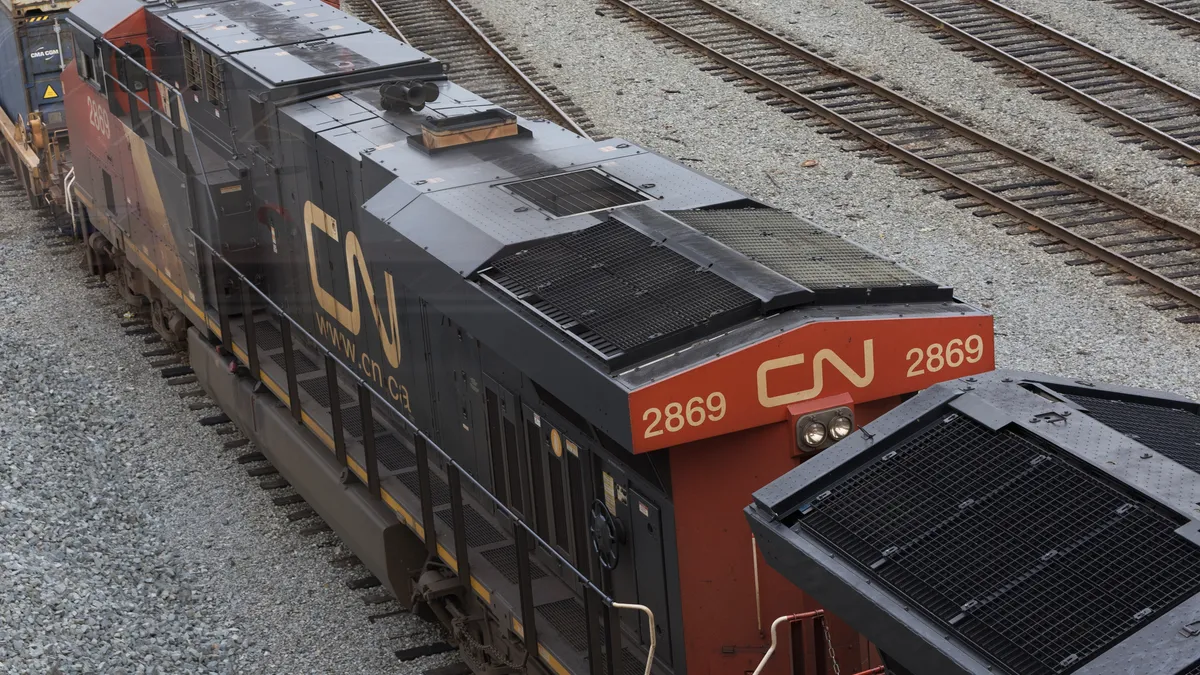Canada's two major freight railroads have shuttered operations in a labor dispute that stands to threaten U.S. supply chains and upend deliveries of food and fertilizer.
Canadian National Railway and Canadian Pacific Kansas City locked out Teamsters union workers at 12:01 a.m., Thursday morning, after failing to reach a contract deal following months of heated negotiations.
The work stoppage carries widespread implications for the agriculture industry, which is dependent on rail to transport grains, fertilizers and other bulk commodities. Canada is the third-largest destination for U.S. agricultural exports, with the country importing $28.2 billion worth of U.S. farm goods in 2023.
In a letter from 35 agricultural groups to Canada’s prime minister, stakeholders warned that even a short work stoppage could lead to weeks of supply chain chaos, and food processing facilities or livestock feeding operations that depend on uninterrupted supply of inputs could be forced to shut down. The sector's reliance on rail will make it difficult to shift shipments to trucks or other modes of transportation.
"Agricultural facilities have no viable alternative transportation options to supply Canada’s international customers and the inability to cycle products through the supply chain could limit producers’ ability to deliver harvested crops," according to the letter.
So far, Canada's corn and soy shipments are not affected, according to S&P Global, as they move by truck to St. Lawrence port terminals. However, demand for U.S. biofuel exports could be impacted as ethanol primarily moves to Canada through rail. Supply chain disruption could also intensify if a work stoppage continues through the upcoming harvest.
Overall, Canada's fertilizer manufacturers stand to bear the brunt of rail disruption, with the sector facing up to C$63 million, or $46 million, per day in lost sales revenue, according to industry estimates. Canada is the world's top producer of potash, and 75% of product is moved by rail.
Prior to the lockout, railroads and industry groups had called on Canada's government to intervene in negotiations, forcing workers to accept an agreement through binding arbitration. Canada's Labour Minister declined requests for binding arbitration last week, saying the two parties should negotiate in good faith.
In 2022, the United States ended a two-day shutdown of its rail networks after Congress passed legislation to impose an agreement on union workers. While Canada's rail networks have previously experienced work stoppages, this is the first time that both of the country's railroads are simultaneously shut down.
“The time for action is now,” Karen Proud, President and CEO of Fertilizer Canada, said in a statement. “We can no longer patiently wait for a resolution. The federal government must protect Canada’s economy and food security by ordering binding arbitration.”











